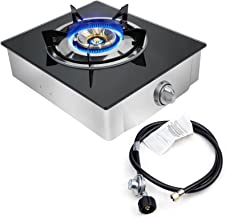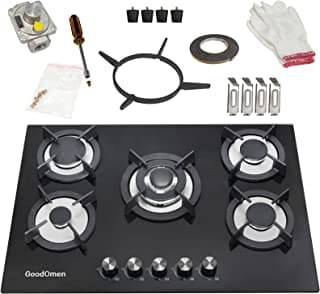
 Save Upto $850 ›
Save Upto $850 ›A gas cooktop is a staple appliance in many households, providing an efficient way to cook meals quickly and easily. But like all appliances, a gas cooktop has a lifespan, and it’s important to know how long you can expect it to last. In this article, we’ll discuss the factors that determine a gas cooktop’s lifespan and give you some tips on how to extend its life.

Several factors determine a gas cooktop’s lifespan, including the brand, model, usage, maintenance, and quality of installation.
The brand and model of the gas cooktop can play a significant role in how long it lasts. Some brands are known for producing appliances that last longer than others. The quality of the materials used in the construction of the cooktop can also affect its lifespan.
The amount of usage a gas cooktop gets can affect its lifespan. If you cook frequently or have a large family, your cooktop will likely have a shorter lifespan than someone who cooks less frequently.
Proper maintenance can significantly extend a gas cooktop’s lifespan. Regular cleaning and maintenance can prevent wear and tear on the appliance and keep it running efficiently. Neglecting to maintain your cooktop can lead to expensive repairs or even the need for a replacement.
The quality of the installation of the gas cooktop can also affect its lifespan. If the cooktop is not installed correctly, it can cause problems down the road that can shorten its lifespan. It’s important to have a professional installer install your gas cooktop to ensure that it is installed correctly.

On average, a gas cooktop can last anywhere from 10 to 15 years. However, several factors can affect this lifespan, such as usage and maintenance. With proper care and maintenance, you can extend your gas cooktop’s lifespan beyond its expected lifespan.
Regular cleaning can prevent food particles and grease from building up and damaging your cooktop. It’s important to clean your cooktop after every use and deep clean it at least once a month.
Using the wrong type of cookware on your gas cooktop can cause damage to the appliance. Use cookware made from materials that won’t scratch the surface of your cooktop, such as stainless steel or ceramic.
Regular maintenance can prevent small problems from turning into big ones. Schedule maintenance checks with a professional to keep your cooktop running efficiently.
Harsh chemicals can damage the surface of your cooktop. Avoid using abrasive cleaners or scrubbers on your cooktop.
Overcrowding the cooktop can cause it to overheat, leading to damage or even a fire. Use the appropriate burner for the size of the pot or pan.
In conclusion, a gas cooktop can last anywhere from 10 to 15 years, but proper maintenance can significantly extend its lifespan. By following the tips above, you can keep your gas cooktop running efficiently for years to come.